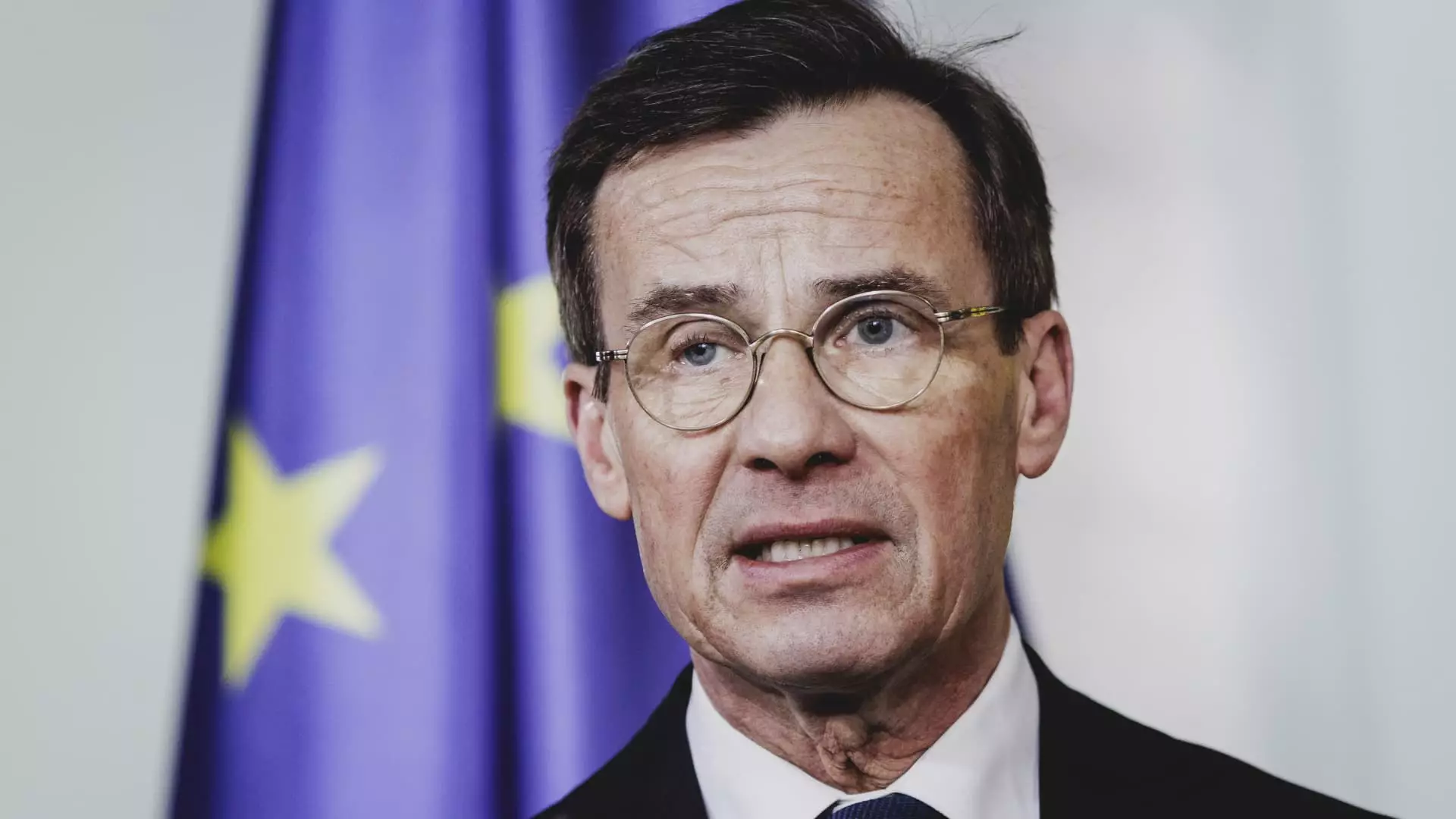In the rapidly evolving landscape of artificial intelligence (AI), Europe finds itself at a significant crossroads, as outlined by Swedish Prime Minister Ulf Kristersson during a recent tech summit in Stockholm. He expressed concern that without a shift in approach toward AI regulation, Europe risks becoming a mere “museum” of technological innovation, overshadowed by the faster-paced growth in the US and China. This statement resonates amid a collective anxiety among European leaders regarding the region’s place in the global tech race, emphasizing a need for adjustments to maintain competitiveness.
Kristersson’s dire warning echoes the sentiments conveyed by other prominent figures, including French President Emmanuel Macron and European Commission President Ursula von der Leyen. Macron’s ambitious announcement of a €109 billion investment in AI, bolstered by foreign and domestic partnerships, highlights a sustained effort to spur innovation across the continent. Similarly, the EU’s commitment to mobilizing €200 billion for AI investments reflects a growing recognition of the necessity for robust financial backing in this pivotal sector.
Despite these initiatives, the patchwork of regulations—most notably the EU’s landmark AI Act—poses challenges for businesses seeking to innovate and thrive. Critics have long spotlighted Europe’s stringent regulatory framework, arguing that it stifles creativity and deters investment. The Act, while aimed at safeguarding against potential threats posed by AI technologies, has been characterized by some as an overreach that could inadvertently hinder the very progress it aims to protect.
American officials, including US Vice President JD Vance, have vocally criticized the EU’s approach, urging European allies to adopt a more optimistic view toward AI development. Vance’s call for international regulatory frameworks that foster innovation rather than constrict it adds a layer to the ongoing debate regarding the balance between necessary oversight and fostering an entrepreneurial ecosystem. His assertions highlight a fundamental concern: innovation cannot flourish under excessive regulatory burdens.
The competitive landscape suggests that Europe must reconsider its regulatory posture to retain and attract talent and investment. Kristersson articulates a crucial point—the need for less regulation and more access to capital and skilled labor. With numerous European firms experiencing challenges accessing cutting-edge technology because of uncertainty surrounding legislation, the imperative for a regulatory rethink has never been more pronounced.
However, this discussion must also take into account the necessity of responsible AI development. As Europe contemplates regulatory reform, the conversation around ethical and safe AI must remain at the forefront. Navigating the path that encourages innovation while ensuring public safety and privacy is no easy feat, yet it is a crucial endeavor in shaping the future of technology on the continent.
The voices of industry leaders further illuminate the complexities underpinning Europe’s AI landscape. Tech executives have raised alarms about the current state of regulation, citing concerns that such approaches may lead to a brain drain, with startups relocating to more favorable environments in the US and beyond. The gravity of this situation demands an urgent re-evaluation of policies designed to retain talent and support burgeoning companies.
Investments similar to those in France and the EU at large must be coupled with a conducive regulatory environment to ensure they bear fruit. Accomplishing this requires collaboration across borders, integrating insights from various sectors to develop a cohesive strategy that binds ethical considerations with economic strategy.
In light of the challenges and opportunities presented, Europe stands at a pivotal juncture. Addressing Kristersson’s caution requires not only a reconsideration of harsh regulations but also an embracing of AI as a key driver of economic growth and transformation. Governments must foster a collaborative space where innovation is prioritized without compromising ethical standards and public trust.
The journey is fraught with challenges, yet the potential rewards of navigating this landscape effectively could lead Europe to reclaim a leading position in the global AI arena. An optimistic regulatory approach, informed by both innovation and responsibility, will be essential in ensuring Europe does not become the “museum” of technological advancement that Kristersson warns against but instead a thriving hub of innovation that fosters growth and excellence in artificial intelligence.


Leave a Reply